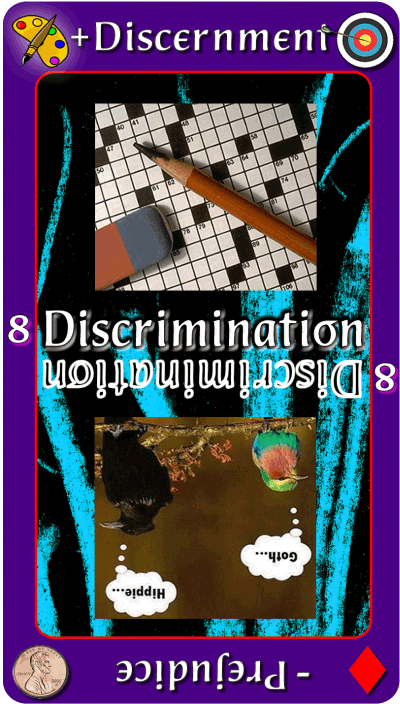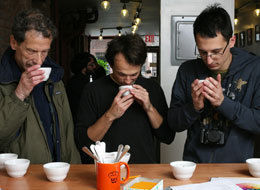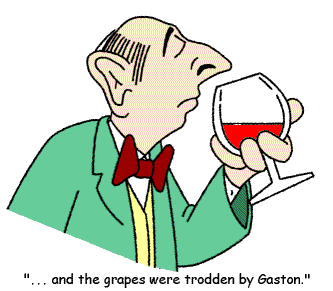8 Discrimination

Discernment, Distinction, Bias,
Prejudice and Rejection

Card messages in the Illuminated position.
+ Discernment
Key Related Concepts: Differentiation, Precision, Refinement, Sophistication, Exclusive, Gourmand, Categorization, Specialization, Distinction
Illuminated Position: The crossword puzzle represents our need to find precision and place into our categories descriptions or definitions which seems to ‘fit’ our available mental space. Discrimination emphasizes the discernment of differences, a sorting of things in contrast to something else. Yet, here no inherent better than-less than distinction, merely a sharpness or dullness of personal classification (i.e. one recognizes the difference between an elephant and elephantiasis.) In this pole, this definition is consistent with modern science’s use of the term discrimination. The pencil and eraser symbolizes that nothing inserted into those spaces is neither fixed nor permanent and is often under rearrangement. Upon new information or refinement of experience, ideas can be modified or even completely erased. And when the boxes themselves are shifted, your context of evaluation changes as well. Reality is formed by our contextual understanding of it! With each stage of development, year of life, and each additional incarnation, a soul has the possibility of expanding or narrowing how they arrange their point of view and what it is. The Intellectual Center is developed because one becomes aware of nuance and accepts or rejects a unique categorization schema. In general, it is the process of recognizing, and then naming, what things are and how they relate to other similar things or experiences. The secondary benefit is that each successive round of comparison, scrutiny intensifies and making distinctions is often termed a level of sophistication. Those persons are commonly thought of as having discriminating tastes. This Goal is a quality woven into the fabric of the Artisan archetype. It helps them hone their precision at whatever task, skill or understanding they seek and express their creativity more abundantly. As a dimensional metaphor, think of one placing something in or out of a set, or classification, of things. For those who are already sophisticated in their awareness, you will recognize that our verbal construction of the Overleaves is an exercise in precision categorization both seeking to quantify various aspects about existence (the kinds of thing), but also to qualify and compare those things in terms of degrees or order of intensity within a group of things. All the great thinkers in the history of human knowledge (Intellectual Center Card 36) but not necessarily those who were Inspirational (Emotional Center Card 40), possessed a level of Discrimination assisting we humans to be more clear, accurate and precise about what we are considering as part of our spiritual, intellectual and emotional evolution.
- If Discrimination is your Goal this lifetime, or pronounced in this circumstance, some lesson needs to be acknowledged and correctly identified, or clarified and refined. Are you doing so?
- You’ve got it. Your precision is honed, your ability to present nuance at its best. Be the artiste’.
- Inuit peoples of the Northern Hemisphere, it has been documented, have invented many words to describe the subtly variations in the qualities of snowfall: whether it has high water content or low, icy and sharp or soft and molding; whether they can travel through it or if it would freeze them in their tracks. Their survival depends upon the correct identification and proper response to each variant. You would be well served to notice what things have been lumped together that actually function differently.
- Show your expertise and sophistication. Demonstrate the refined temperament and knowledge of a specialist.
- Subtlety is only learned because of the power of discernment. Differentiating flavor, or texture, or nuance is a pleasure and a necessity of living. Has someone hatched a sophisticated plot? Have you missed the subtlety currently operating? It is time for deeper scrutiny.
- A sophisticated person measures carefully their time, tastes, and appearance. Discern exactly what qualities you are looking for when you decide to make an investment in time, money, or another person.
- The ultimate power our mind gives us is the ability to make distinctions. Use this gift to divide the circumstance into smaller parts. You will find gems inside. Divide and conquer.
- The whole process of Discrimination should illustrate the highly valuable skill of differentiation into classifications of kind, and ranges of degree, quantity and quality. Clarifying these variations gives one greater powers of discernment and thereby more informed decision making. Clear your mind and begin relooking.
- You show ‘good judgment’ when you discern that some knowledge is not in your area of competency. Best to seek out a knowledgeable person or professional expert for details.
- What would you rather have the doctor use in heart surgery: a scalpel or a dinner knife? Every task has an optimum tool to perform it with. Get the best one you can find for this job.
- If you chisel away with small chips and groves, before you know it, you’ll have developed your inner Michelangelo. Small refinements or tweaks are called for rather than wholesale changes.
- In behavioral psychology, Discrimination is the ability to differentiate and thus make more successful selections for your survival. This often goes hand-in-hand with deliberation and impulse control. Be successful.
- In the extreme, your biases will lead you to reject some people or options. But when tempered from personal observation and experimentation they are called intuition. Just because it is a “judgment call” doesn’t mean it isn’t valid.
- Evaluation, and weighing considerations, is the first step in decision-making. Join with the skeptic and be cautious and meticulous in scrutinizing the data. Then you will have the facts and you will better know how to proceed.
Quotes that characterize this pole…
“Do not judge and you will never be mistaken.” ~Jean Jacques Rousseau
Card messages in the Shadow position.
Shadow (-): Prejudice, rejecting, prickly, judgmental, condescension,
Shadow Position: Sometimes, we completely miss our similarities in favor of the things, generally superficial, that make one better than the other. These birds on a wire have been anthropomorphized to demonstrate a point. Race or ethnic hatred is a social bias toward a certain group because of fashion or pedigree, with a focus on the “otherness” increasing separation with undeserved scorn or praise. Such is the case in the negative pole of Prejudice. When the mind become clouded by the sensations of pleasure or pain (Moving Center Card 38) or the bias of historical emotional traumas or rewards, then in the negative pole, this goal is skewed to favor or reject on the basis that: like is good and difference is bad. What is often honed in upon are superficial distinctions to make oneself either better-than (superior and preferred) or less than (inferior and rejected) in some hierarchy of power. Either way, prejudice is laced with stereotypic judgment, skewed assessment, and unnamed bias. But it the emotionally charged condemnation or pedestalization default setting of Discrimination, in this pole, that produces an inaccurate attribution of qualities, negative or positive, to someone or something. Prejudice is an innate aspect or tribalism (Child Card 72) and thus has embedded within it the need to know your place in a hierarchy as to avoid rejection (banishment) and maintain acceptance (inclusion) within whatever group you identify with. Thus from this fearful motivation, one seeks all advantage to sustain themselves or their abilities as superior to someone else’s or establish an unwarranted positive bias (called the “Halo Effect”) where someone or thing or group is granted the status, “they are superior to me.”
– Prejudice
(Judgmental, Opinionated, Bigoted, Prickly, Rejecting, Snobbish, Close-minded, Exclusion, Banishment)
- To be a victim of prejudice is to be judged less-than and rejected because of it. Placed in a hierarchy and rejected for being different. Is your judgment tainted by some bias? Are some facts being rejected?
- Rejection is usually a fear based response. Are you about to banish someone or something that is actually useful just because the way they show up is not to your liking?
- Seldom is rejection preferable to reassignment or recategorization. There is less waste when you classify more accurately.
- Binary thinking is a form of bigotry. It shows the prejudice of bias and substandard imagination. Think harder! Include other options, not exclude them to either/or.
- Prejudice is to be placed in a hierarchy and judged less-than. A not-so-subtle exclusion or marginalization is happening because of it. Show your quality and show bigotry out the door.
- Be careful what (or who) prejudice tells you to exclude. You might toss the baby out with the bathwater.
- Repeating mistakes? Then you are not learning.
- CTRL+ALT+DEL. Take Control, Alternate options should be Deleted! Exclusion is final but in this case necessary. This situation requires getting rid of something ON PURPOSE!
- Get rid of the rotten apples, not the whole bunch.
- Jean Jacques Rousseau said, “Do not judge and you will never be mistaken.” Good luck with that! The brain is wired to evaluate. Stop pretending that you are NOT already deeply locked into disapproval of someone’s process.
- Of course you judge! How does it serve your position? Can you, or the other person honest about the process and then go beyond the emotional attachment to being right? Use everything you have learned.
- “None so blind as those who will not” Matthew Henry – Exclude at your own risk.
- The Old Artisan Leonardo da Vinci reminds us that, “the greatest deception men suffer is from their own opinions.” Which ones are deceiving here?
- We often call people of privilege as being “snooty”. It is interesting because those who ‘look down their nose at you’ are actually in the negative pole of this Overleaf. They rely on it for everything from sniffing fine wine to determining whether the flowers are fragrant or stink. No reason you can’t have a preference, just be careful not to make it a condescension.
Quotes that characterize this sentiment…
- “Preconceived notions are the locks on the door to wisdom.” ~Merry Browne
- “Small is the number of people who see with their eyes and think with their minds”. ~Albert Einstein
Relevance in the Michael Teaching
As a Goal, Discrimination, formerly called Rejection, requires the Personality to refine, by whatever means necessary its categorizations of things and experiences. In other words, this can be a process governed by well reasoned, thoroughly investigated, illuminated and sophisticated discernment; or it may be outright reductionism and emotional favoritism substituting personal prejudice as the mechanism for segregating experience.
 The 2% of people who activate this goal as their primary learning directive may as a matter of course seem intellectual but by no mean all educated in an academic sense. More common of this goal are those who know a vast number of things about a specific subject. It might be that person knows the nuances of art, or engine repair, or biological processes, or the exact way to bake a perfect cake. Subtle differences comprise all life and the advancement of the soul depends upon a periodic sorting of knowledge as to capture the deeper or richer meanings embedded therein.
The 2% of people who activate this goal as their primary learning directive may as a matter of course seem intellectual but by no mean all educated in an academic sense. More common of this goal are those who know a vast number of things about a specific subject. It might be that person knows the nuances of art, or engine repair, or biological processes, or the exact way to bake a perfect cake. Subtle differences comprise all life and the advancement of the soul depends upon a periodic sorting of knowledge as to capture the deeper or richer meanings embedded therein.
When in the Shadow of this Goal, a person may if they commit themselves to being liberated from it, may utilize the paired opposite of this impulse is to drop the constricting parameters relinquishing it to Acceptance. Acceptance is inclusive and allows for variation and difference without the need to segment. It is the counterbalance for an overactive need to restrict or reject things that cannot be understood or controlled.
Cultural Meaning
Discrimination is either a highly emotionally charged word or a highly precise scientific term. Both tend to follow the trend of the negative and positive poles of the Overleaf above. Both involve separation and distinction.
 When most people hear the word discrimination: prejudice, unfair treatment and exclusion, are the words often considered synonymous. They are not. Discrimination means choosing distinguishing amongst similar objects because of minute differences is the talent of this aspect of human understanding. This latter description is how psychologists apply this concept to maturity and development of understanding. Knowing the difference between love and infatuation, sex and true intimacy, inner power vs. outer dominance are keys in a person’s ability to make choices that are life affirming and in harmony with ones values.
When most people hear the word discrimination: prejudice, unfair treatment and exclusion, are the words often considered synonymous. They are not. Discrimination means choosing distinguishing amongst similar objects because of minute differences is the talent of this aspect of human understanding. This latter description is how psychologists apply this concept to maturity and development of understanding. Knowing the difference between love and infatuation, sex and true intimacy, inner power vs. outer dominance are keys in a person’s ability to make choices that are life affirming and in harmony with ones values.
Otherwise, as is the case with all person’s whose sense of “picky” specificity is based upon some unfulfilled need or fear of being wrong, the emergence of favoritism to the extreme of extermination. Being faced with a need, or in some cases obsession, which requires placing into “boxes”, ideas, beliefs and experiences then serve as a template for deepening understanding or codifying fears and reactions into well justified and preconceived notions.
You might have this Overleaf if…
- You tend to have a refined sense of smell.
- You notice little differences without even paying attention.
- “I am very picky about my tastes.”
- I have to know all the options available to me before I make a decision.
- I don’t care what your tastes are, mine are better.
- I tend to see things in different categories or make them myself.
Once this Goal fulfills its function of separating things into perspective, those things that have been rejected don’t just go away. Acceptance is the next stage of work; coming to terms with the notion that exclusion of those ideas, things, people, or circumstances from your mind doesn’t mean they go away in the world. Said in contemporary terms, now that you have dealt with excluding things away how are you going to include those people or things that remain? Finding a way to coexist with aspects of reality you dislike is the purpose of this next Goal of Acceptance.
by Stephen Cocconi © 2023
For a Motivation Cards Consultation or Channeled Session call: 209.768-4956 or email Stephen at channeling@themichaelteaching.com


Sorry, the comment form is closed at this time.